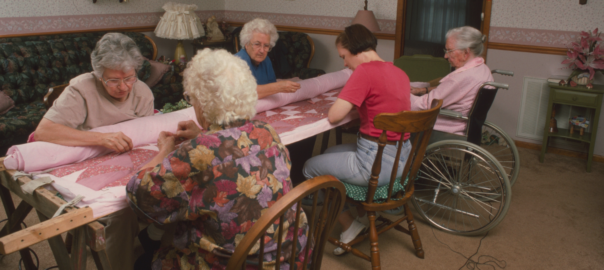Life after leaving rehab or inpatient treatment can be challenging. Many people need help to transition back to their communities and lives, making a sober living house a great option to help make the move smoother. If you’re wondering what a sober house is like, read on to find out how it works and if it’s the right step for you.
What is a Sober House?
A sober house is a place where people can live while they are in the process of recovery from addiction. In some cases, sober houses can be found within larger facilities, such as a rehab center, where people can reside for a time and learn the skills needed for long-term recovery. A sober house can also be independent of a larger treatment center, and sometimes, former treatment patients can go through a sober living program of sorts as they transition back into life after treatment before they return home.
An intake counselor takes information about a person’s physical health, mental health concerns, drug use history, and treatment objectives when they check into a sober house. Counselors identify particular requirements that the program can satisfy and assist in explaining the home routine so that residents understand what is expected of them. Drug and alcohol testing may be performed regularly to verify that everyone in the house remains sober. Some sober houses enable members to go to school, work, or volunteer while living there.
What to Expect When Moving into a Sober Living House
One of the most often asked questions about sober living houses is what life is like daily. Daily and weekly routines are used in sober houses to assist members to live as a family unit working toward similar goals. Cooking and cleaning duties are shared so that everyone contributes to the efficient operation of the sober house. Many persons who have spent an extended period buried in drug and alcohol addiction have lacked a routine and benefit from having one again. As a resident of the home, individuals learn to accept responsibility, collaborate, and hold themselves accountable.
What’s the Difference Between a Sober and a Halfway House?
When seeking help while working on your sobriety, it’s crucial to grasp the distinction between sober living and halfway homes so you can determine which is best for you.
Some sober living homes are now associated with addiction treatment programs. In contrast, others are operated by sober living professionals whose only purpose is to create a safe living environment for persons in this stage of recovery.
So, what exactly is a halfway house? Some halfway homes are managed by government entities. Halfway houses can be busy and dorm-like, whereas sober living homes are more like private homes, providing occupants with more solitude and comfort.
Another distinguishing characteristic between sober living and halfway houses is the expense. Halfway homes are often the least priced alternative since they offer fewer amenities, less privacy, and less structure. On the other hand, Sober living is occasionally covered by insurance, making it a practical alternative for persons who may benefit from this level of support.
Conclusion
Living in a sober home is a significant transition step for someone considering returning home to live independently. It offers structure, support, and a new lease on life to help people get back on their feet.
Stayhaven Homes offers affordable shared housing in Stanislaus, Merced, and Sacramento. We proudly provide special housing options for teens, the elderly, veterans, and more. Contact us today to learn more about how we can help you!




